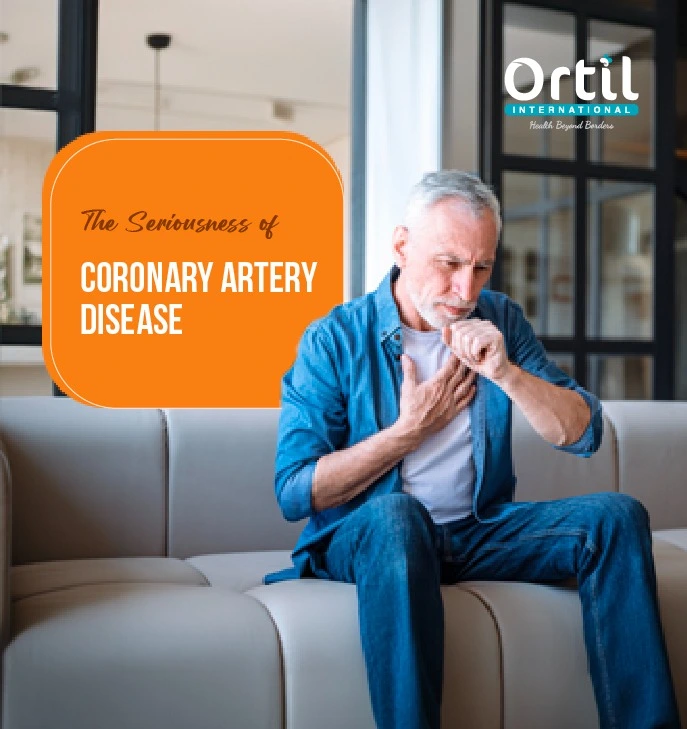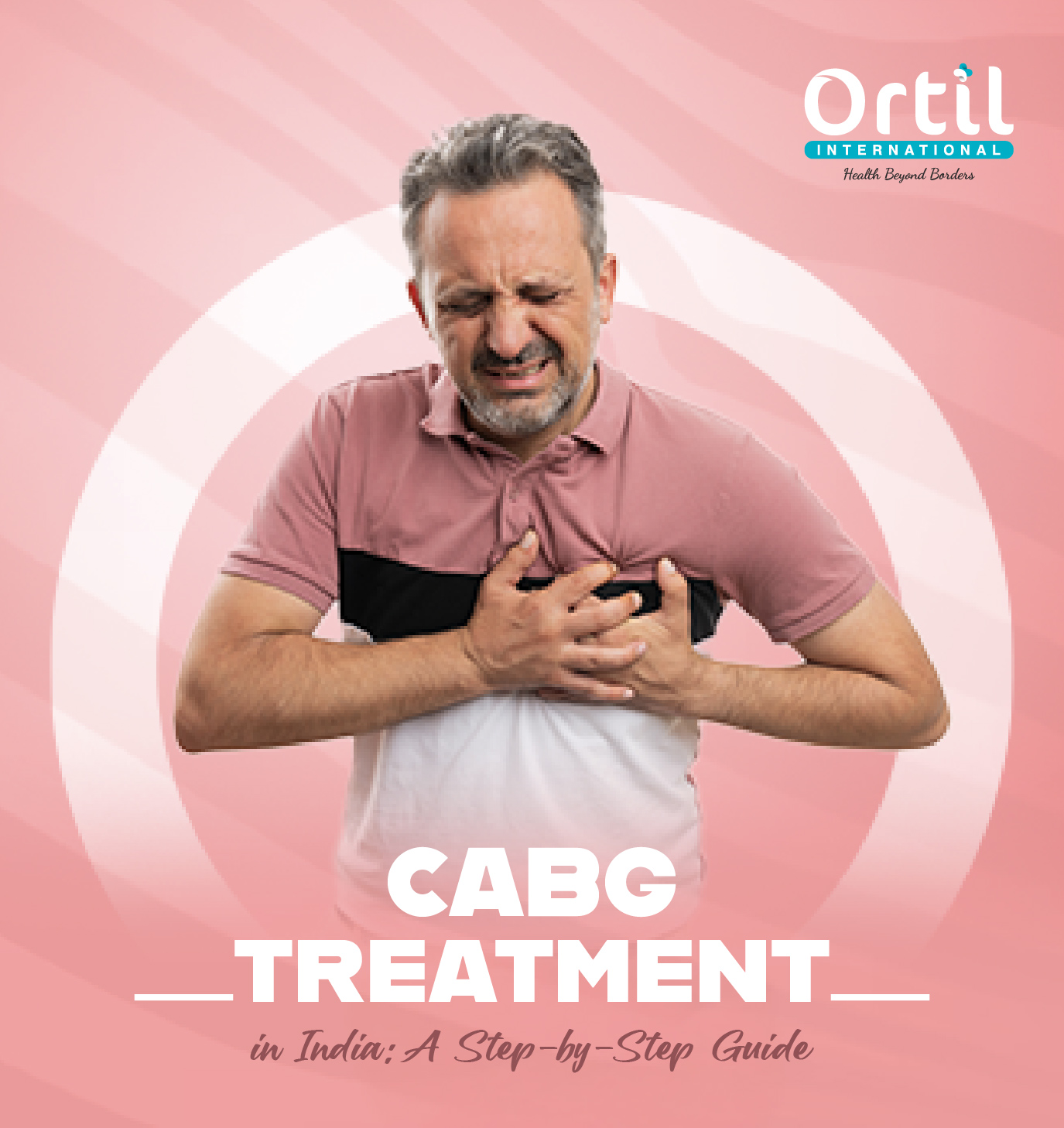What is Coronary Artery Disease?
Coronary artery disease is a medical condition in which the heart's blood vessels become narrowed or blocked. It is one of the most common diseases of the heart. The coronary artery is the main blood vessel that supplies blood to the muscles of the heart, and when the normal blood flow becomes compromised, it can cause complications. The coronary artery usually becomes blocked due to the deposition of fat or damaged walls of blood vessels.
 How Common is Coronary Artery Disease?
How Common is Coronary Artery Disease?
Coronary artery disease is highly prevalent and is one of the primary reasons for death worldwide. It frequently affects older men aged over 45 and women over 55. The estimated number of individuals living with coronary heart disease is around 200 million. Worldwide, approximately 110 million men and 80 million women are diagnosed with coronary heart disease.
What Causes Coronary Artery Disease (CAD)?
The most common cause of coronary artery disease is atherosclerosis, which is caused by the building up of cholesterol, fats, and debris inside the blood vessels. However, inactive lifestyle and other factors can also cause coronary artery disease. Some of the causes are listed below:
- Atherosclerosis
- High blood pressure (Hypertension)
- High cholesterol
- Smoking
- Diabetes
- Obesity
- Physical inactivity
- Unhealthy diet
- Family history of heart disease
- Stress
- Age
- Excessive alcohol consumption
- Metabolic syndrome
- Chronic kidney disease
- Inflammation conditions
Coronary Artery Disease Symptoms
The most common symptoms usually seen in coronary artery disease are as follows:
- Chest pain
- Shortness of breath
- Heart attack
- Fatigue
- Dizziness or lightheadedness
- Nausea
- Sweating
- Weakness
- Rapid or irregular heartbeat
- Pain in the arms or shoulders
- Pain in the neck, jaw, throat, or back
Coronary Artery Disease Risk Factors
Coronary artery disease can have many risk factors, including lifestyle factors, genetics, and the use of specific medications. Here are some of the risks that increase the chances of coronary artery disease:
Atherosclerosis: It is a condition of the build-up of fatty deposits inside the coronary arteries that leads to narrowed or blocked arteries and restriction of blood flow to the heart.
High Blood Pressure (Hypertension): An increased force of blood against artery walls can damage arteries and lead to atherosclerosis.
High Cholesterol: When there is an elevated level of bad cholesterol in the blood, plaque formation in the arteries, including the coronary artery, is promoted.
Smoking: The use of tobacco products can damage the lining of arteries, which in turn raises blood pressure, reduces oxygen in the blood, and promotes atherosclerosis.
Diabetes: A high blood sugar level can increase the risk of atherosclerosis.
Obesity: People with obesity are more prone to develop heart diseases, including coronary artery disease.
Physical Inactivity: A poor lifestyle with inactivity leads to many problems like high blood pressure, obesity, and diabetes, which all are the risks of developing coronary heart disease.
Unhealthy Diet: People with poor & unbalanced diets which is high in saturated fats, trans fats, salt, and sugar raise cholesterol levels and blood pressure, which promotes many health problems.
Family History of Heart Disease: A positive family history of heart disease can increase the chances of developing heart disease.
Stress: Physical or emotional stress can raise blood pressure and lead to unhealthy coping mechanisms like smoking and overeating.
Age: The risk of coronary artery disease increases after age 45 in men and 55 in women.
Metabolic Syndrome: Many conditions, including high blood pressure, high blood sugar, excess body fat around the waist, and abnormal cholesterol levels, can significantly increase the risk of coronary artery disease.
Chronic Kidney Disease: Gradual loss of kidney function over time can contribute to high blood pressure and inflammation, which increases the risk of coronary artery disease.
Coronary Artery Disease Diagnostic Tests
A correlation between physical examination findings and diagnostic tests can diagnose coronary artery disease. Here are some of the tests you can follow in coronary artery disease:
- Physical Examination & Past Medical History
- Electrocardiogram (ECG or EKG)
- Stress test (exercise or pharmacologic)
- Echocardiogram
- Coronary angiography
- Cardiac catheterization
- CT coronary angiography
- MRI of the heart
- Nuclear stress test
- Blood tests (cholesterol levels, troponin)
- Chest X-ray
- Holter monitor (ambulatory ECG)
- Ankle-brachial index (ABI)
- Intravascular ultrasound (IVUS)
- Coronary artery calcium scan (CAC)
Coronary Artery Disease Complications
Coronary artery disease is a severe condition, and it should be managed on time before it can cause other complications like Heart attack (Myocardial infarction), Heart failure, Arrhythmias, Angina (chest pain), Stroke, Peripheral artery disease, Chronic kidney disease, Cardiogenic shock, Aneurysm, Depression and anxiety.
Coronary Artery Disease Treatment
Treatment of coronary artery disease involves a multidisciplinary approach. It requires surgery, which improves the heart condition, and lifestyle modifications that prevent future cardiac problems. So, the treatment of coronary artery disease involves the following aspects:
Lifestyle Changes:
- Healthy diet
- Regular exercise
- Smoking cessation
- Weight management
- Stress reduction
Medications:
- Antiplatelet drugs (e.g., aspirin)
- Cholesterol-lowering medications (e.g., statins)
- Beta-blockers
- ACE inhibitors
- Angiotensin II receptor blockers (ARBs)
- Calcium channel blockers
- Nitroglycerin
- Anticoagulants
Medical Procedures:
- Angioplasty and stenting
- Coronary artery bypass grafting (CABG)
Other Treatments:
- Cardiac rehabilitation
- Management of underlying conditions (e.g., diabetes, hypertension)
Prevention of Coronary Artery Disease
Coronary artery disease can be prevented by having a good lifestyle, a balanced diet, and physical exercises. You can also prevent CAD by quitting excess alcohol consumption and smoking. Improving the sleep cycle also promotes general health and prevents heart disease. Patients with hypertension can also prevent further complications by taking medications on time and managing their weight.
FAQ's Of Coronary Artery Disease
When Should I Call My Healthcare Provider?
You should call your healthcare provider if you experience any of the symptoms of coronary artery disease.
What is the Life Expectancy of Someone With Coronary Artery Disease?
Patients with coronary artery disease can improve their life expectancy with proper medications and lifestyle changes. Otherwise, CAD can reduce lifespan by about ten years.
How Severe is Coronary Artery Disease?
Patients with coronary artery disease are at greater risk of heart failure, so it is a severe condition that needs emergency care.
What is the Best Treatment for Coronary Artery Disease?
The treatment for coronary artery disease depends on the extent of damage to coronary arteries. But it usually involves medications, procedures, and lifestyle modification.
Can You Recover From Coronary Artery Disease?
Coronary heart disease is not curable, but treatment can help manage symptoms and reduce the risk of problems such as heart attacks.











 How Common is Coronary Artery Disease?
How Common is Coronary Artery Disease?







